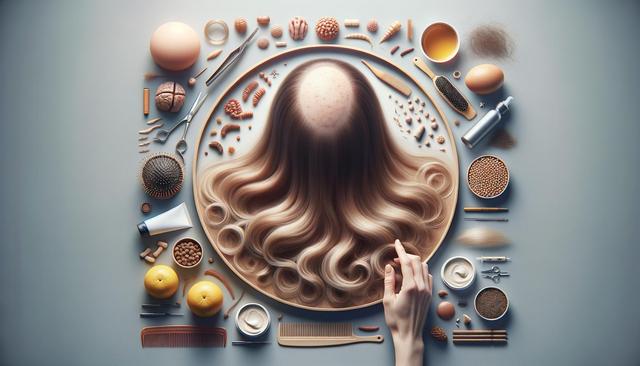Common Causes of Hair Loss
Hair loss can occur for various reasons, and identifying the root cause is essential for finding an effective solution. Genetics is one of the most common contributors, especially in cases of pattern baldness. Hormonal changes, particularly in women during pregnancy or menopause, can also lead to noticeable thinning. Additionally, physical or emotional stress, poor diet, and certain medications can trigger temporary or long-term hair shedding.
One often overlooked factor is nutritional deficiency. For example, iron, zinc, and biotin are all crucial for maintaining healthy hair. A lack of key nutrients may not only weaken the hair shaft but also slow down growth. This is where the question arises: What vitamin deficiency causes hair loss in females? Commonly, deficiencies in vitamin D, B12, and iron are associated with increased hair shedding in women. Addressing these gaps through proper diet and targeted supplementation can help restore balance and promote healthier hair.
The Role of Nutrition in Hair Health
Your hair is a reflection of your overall health, and what you eat plays a major role in its condition. Without sufficient nutrients, hair can become brittle, thin, or even fall out. Protein is the building block of hair, but vitamins and minerals are equally important for scalp health and follicle function. Integrating vitamins for hair growth and thickness into your diet can support hair structure and resilience.
Some essential nutrients for hair health include:
- Biotin (Vitamin B7): Supports keratin production and hair strength
- Vitamin D: Helps stimulate hair follicles
- Iron: Essential for oxygenating scalp tissues
- Zinc: Maintains oil glands and hair repair
- Vitamin A and C: Promote sebum production and collagen formation
Consuming a balanced diet rich in these nutrients or adding supplements when necessary can help prevent deficiencies that lead to hair thinning and loss.
Supplements That Support Hair Growth
Choosing the right supplements can be an effective way to support hair health, especially when dietary intake may not be sufficient. Many people turn to the best supplements for hair growth and thickness to provide a comprehensive mix of nutrients that target hair concerns from multiple angles. These supplements often include a combination of biotin, folic acid, vitamin D, zinc, and other essential compounds.
When selecting a supplement, it’s important to look for:
- Clinically studied ingredients
- Balanced doses appropriate for daily needs
- Products free from unnecessary fillers or allergens
Supplements are not a quick fix, but with consistent use and a healthy lifestyle, many users report improved hair texture, reduced shedding, and fuller appearance over time. However, it’s beneficial to consult a healthcare provider before beginning any new supplement regimen.
Hair Loss in Men: Causes and Solutions
While hair loss affects both genders, men often experience it earlier and more prominently due to genetic predisposition. Male pattern baldness, or androgenetic alopecia, is typically influenced by hormones like dihydrotestosterone (DHT), which can shrink hair follicles over time. Other contributing factors include stress, lifestyle habits, and poor nutrition.
To address these issues, many men turn to vitamins for hair loss men that focus on DHT blockers and nutrient support. Key ingredients often include:
- Saw Palmetto: Known to help block DHT production
- Biotin and Niacin: Support hair strength and scalp circulation
- Vitamin E: Increases blood flow to the scalp
- Collagen: Supports hair shaft structure
Combining these with a healthy diet, regular exercise, and stress management can significantly aid in slowing down or reversing some types of hair loss in men.
When to Seek Professional Help
While dietary changes and supplements are helpful, there are cases where professional intervention is needed. If you notice sudden or patchy hair loss, or if your hair continues to thin despite lifestyle adjustments, it’s wise to consult a dermatologist or healthcare provider. Underlying issues such as autoimmune conditions, thyroid imbalances, or scalp infections could be contributing to the problem.
A professional can perform tests to identify specific deficiencies or medical conditions and recommend a personalized treatment plan. This might include topical treatments, prescription medication, or advanced therapies like platelet-rich plasma (PRP) or low-level laser therapy. Early intervention often leads to better outcomes, so paying attention to your hair’s health is more than just a cosmetic concern—it’s a window into your overall well-being.




Leave a Reply